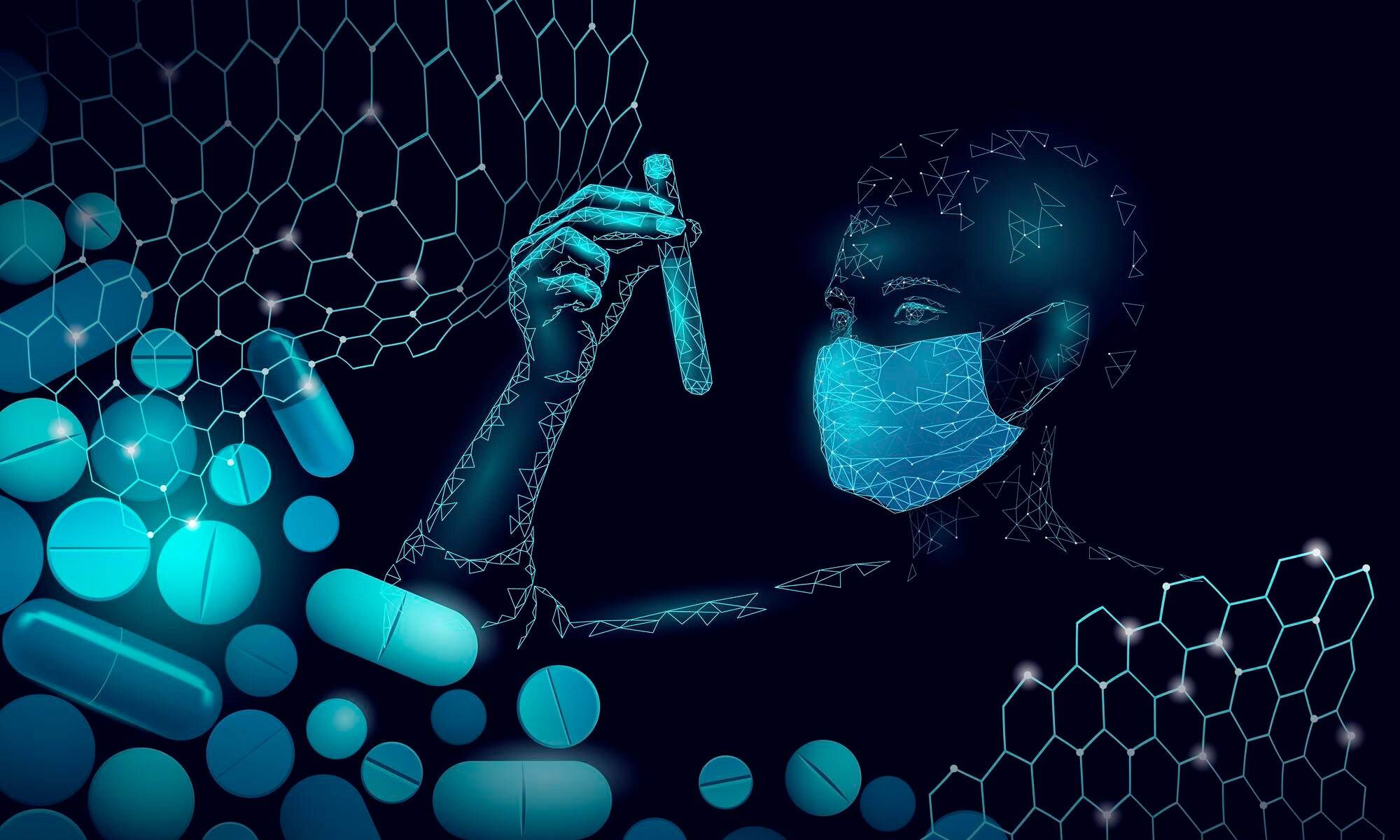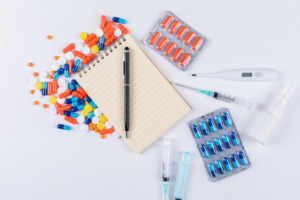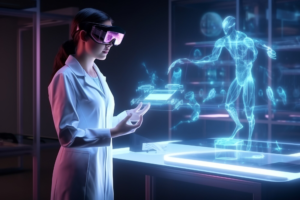
What is Artificial Intelligence (AI)?
Artificial Intelligence (AI) refers to the simulation of human intelligence in machines, allowing them to learn, reason, and make decisions. AI uses algorithms and models to analyze data, recognize patterns, and provide insights without direct human intervention. In drug discovery and development, AI assists in identifying potential drug candidates, predicting their interactions, and optimizing clinical trials.
What Role is AI Playing in Drug Development?
AI is transforming drug development by reducing the time and cost required to bring new drugs to market. Some key areas where AI is making an impact include:
1. Drug Discovery and Target Identification
AI analyzes vast datasets from biological studies, genetics, and chemical libraries to identify promising drug candidates. AI-powered platforms can screen millions of compounds in a short time, reducing the need for extensive laboratory testing.
2. Predicting Drug-Target Interactions
AI models predict how drug compounds interact with biological targets, helping researchers identify effective and safe drug candidates while minimizing side effects.
3. Designing New Drugs
Machine learning models generate novel molecular structures optimized for safety and efficacy, reducing dependency on trial-and-error methods.
4. Optimizing Clinical Trials
AI improves clinical trials by:
- Selecting the right patient population through genetic and medical history analysis.
- Predicting trial outcomes to minimize failures.
- Monitoring patients in real-time using wearable devices and AI-powered analytics.
5. Drug Repurposing
AI identifies existing drugs that could treat new diseases by analyzing how they interact with different biological pathways. This was evident during the COVID-19 pandemic when AI was used to find potential treatments.
Explore a leading manufacturer of APIs.
With over 10 years of expertise, we ensure GMP compliance and provide reliable, high-quality solutions.
What is CDER’s Perspective on the Use of AI in Drug Development?
The Center for Drug Evaluation and Research (CDER), part of the U.S. Food and Drug Administration (FDA), is actively exploring AI’s role in drug development. CDER’s perspective on AI includes:
1. Ensuring AI Model Credibility
The FDA has introduced draft guidance on AI to evaluate its credibility in regulatory submissions. This guidance provides a framework for assessing AI-driven drug development tools based on reliability and transparency.
2. Encouraging Early Engagement
The FDA recommends that drug developers consult with regulatory bodies early in the AI development process to ensure that AI models meet regulatory standards.
3. Addressing Bias and Data Quality
AI-driven drug development relies on large datasets, but biased or incomplete data can lead to inaccurate predictions. CDER emphasizes the importance of high-quality, diverse, and unbiased datasets to ensure AI-generated insights are accurate.
4. Ethical and Regulatory Challenges
CDER highlights the need for ethical AI implementation, addressing concerns related to data privacy, patient safety, and transparency.
How Can AI Be Used in Drug Development?
AI can be applied in multiple ways throughout the drug development lifecycle:
1. Preclinical Research
- AI analyzes genomic data to identify disease targets.
- Simulates drug-receptor interactions to predict the best drug candidates.
2. Clinical Development
- AI optimizes clinical trial design and patient recruitment.
- Uses predictive modeling to assess drug efficacy and safety.
3. Manufacturing & Quality Control
- AI enhances drug formulation and production efficiency.
- Identifies potential defects in drug batches.
4. Regulatory and Post-Market Surveillance
- AI assists in adverse event detection and post-market drug monitoring.
- Helps regulatory agencies assess real-world drug effectiveness.
Selected Guidance and Publications on AI in Drug Development
FDA’s AI-Related Guidance
- AI in Drug Development: The FDA’s draft guidance on the use of AI in drug submissions provides recommendations for validating AI models.
- AI in Medical Devices: The FDA has also issued guidance on AI in medical device regulation.
WHO’s Perspective on AI in Healthcare
- AI for Health Initiative: The World Health Organization (WHO) has established an AI for Health Framework to evaluate AI applications in healthcare.
European Medicines Agency (EMA) Guidance
- The EMA is developing AI guidelines to support drug development, emphasizing data integrity and transparency.
Final Thoughts
AI is revolutionizing drug discovery and development by reducing costs, accelerating timelines, and improving success rates. Regulatory bodies like the FDA, WHO, and EMA are actively developing frameworks to ensure AI-driven drug development is safe, transparent, and effective.
As AI continues to evolve, its role in personalized medicine, clinical trials, and drug safety monitoring will expand, ultimately improving global healthcare.
Chemignition Laboratory is currently upgrading its infrastructure to integrate AI technology across GMP compliance and the R&D department. This advancement aims to enhance real-time monitoring, ensure regulatory precision, and accelerate research efficiency for high-quality API manufacturing.
For detail refer www.chemignition.com
FAQs
How is AI used in drug discovery?
AI helps in drug discovery by analyzing large datasets, predicting drug-target interactions, designing new molecules, and identifying potential drug candidates faster than traditional methods. It reduces trial-and-error approaches and speeds up the process of finding new drugs.
Can AI predict drug interactions?
Yes, AI models analyze chemical structures and biological pathways to predict how different drugs will interact. This helps reduce side effects and ensures drug safety before human trials.
What are the benefits of AI in drug development?
- Speeds up drug discovery
- Reduces development costs
- Improves drug safety and effectiveness
- Enhances clinical trial efficiency
- Enables personalized medicine
What is the future of AI in drug development?
AI will continue to play a major role in personalized medicine, faster drug discovery, and better regulatory compliance. As technology advances, AI will make drug development more efficient and precise.



